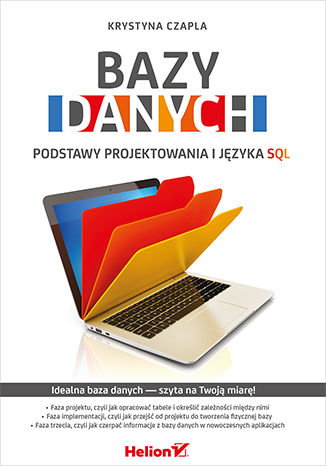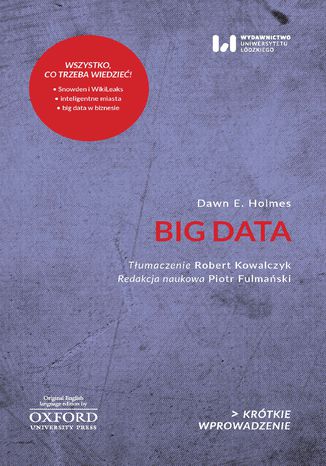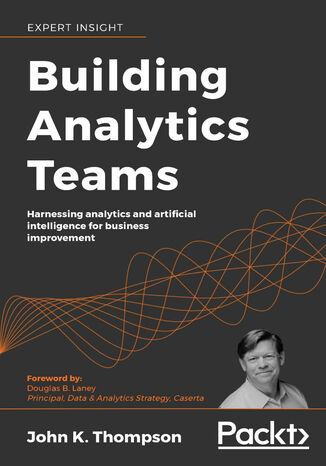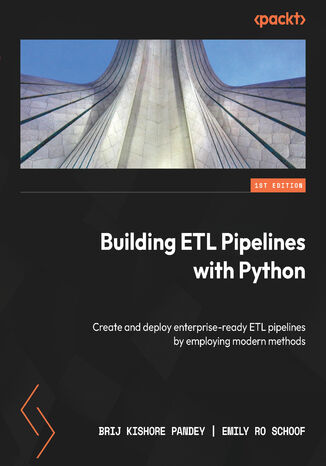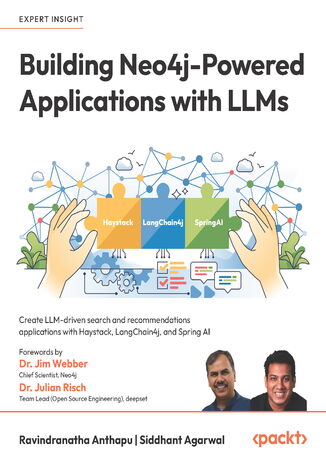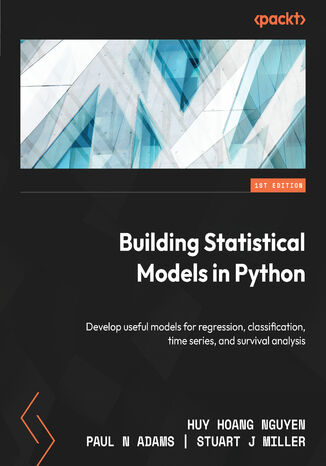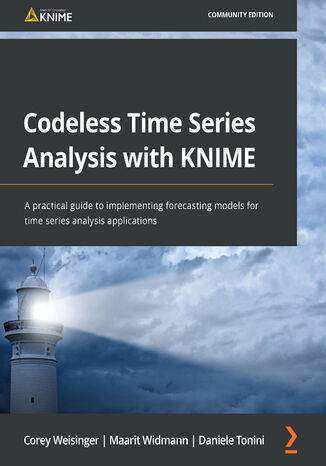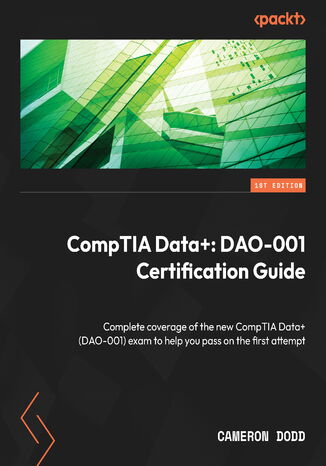Categories
Ebooks
-
Business and economy
- Bitcoin
- Businesswoman
- Coaching
- Controlling
- E-business
- Economy
- Finances
- Stocks and investments
- Personal competence
- Computer in the office
- Communication and negotiation
- Small company
- Marketing
- Motivation
- Multimedia trainings
- Real estate
- Persuasion and NLP
- Taxes
- Social policy
- Guides
- Presentations
- Leadership
- Public Relation
- Reports, analyses
- Secret
- Social Media
- Sales
- Start-up
- Your career
- Management
- Project management
- Human Resources
-
For children
-
For youth
-
Education
-
Encyclopedias, dictionaries
-
E-press
- Architektura i wnętrza
- Health and Safety
- Biznes i Ekonomia
- Home and garden
- E-business
- Ekonomia i finanse
- Esoterecism
- Finances
- Personal finance
- Business
- Photography
- Computer science
- HR & Payroll
- For women
- Computers, Excel
- Accounts
- Culture and literature
- Scientific and academic
- Environmental protection
- Opinion-forming
- Education
- Taxes
- Travelling
- Psychology
- Religion
- Agriculture
- Book and press market
- Transport and Spedition
- Healthand beauty
-
History
-
Computer science
- Office applications
- Data bases
- Bioinformatics
- IT business
- CAD/CAM
- Digital Lifestyle
- DTP
- Electronics
- Digital photography
- Computer graphics
- Games
- Hacking
- Hardware
- IT w ekonomii
- Scientific software package
- School textbooks
- Computer basics
- Programming
- Mobile programming
- Internet servers
- Computer networks
- Start-up
- Operational systems
- Artificial intelligence
- Technology for children
- Webmastering
-
Other
-
Foreign languages
-
Culture and art
-
School reading books
-
Literature
- Antology
- Ballade
- Biographies and autobiographies
- For adults
- Dramas
- Diaries, memoirs, letters
- Epic, epopee
- Essay
- Fantasy and science fiction
- Feuilletons
- Work of fiction
- Humour and satire
- Other
- Classical
- Crime fiction
- Non-fiction
- Fiction
- Mity i legendy
- Nobelists
- Novellas
- Moral
- Okultyzm i magia
- Short stories
- Memoirs
- Travelling
- Narrative poetry
- Poetry
- Politics
- Popular science
- Novel
- Historical novel
- Prose
- Adventure
- Journalism, publicism
- Reportage novels
- Romans i literatura obyczajowa
- Sensational
- Thriller, Horror
- Interviews and memoirs
-
Natural sciences
-
Social sciences
-
School textbooks
-
Popular science and academic
- Archeology
- Bibliotekoznawstwo
- Cinema studies
- Philology
- Polish philology
- Philosophy
- Finanse i bankowość
- Geography
- Economy
- Trade. World economy
- History and archeology
- History of art and architecture
- Cultural studies
- Linguistics
- Literary studies
- Logistics
- Maths
- Medicine
- Humanities
- Pedagogy
- Educational aids
- Popular science
- Other
- Psychology
- Sociology
- Theatre studies
- Theology
- Economic theories and teachings
- Transport i spedycja
- Physical education
- Zarządzanie i marketing
-
Guides
-
Game guides
-
Professional and specialist guides
-
Law
- Health and Safety
- History
- Road Code. Driving license
- Law studies
- Healthcare
- General. Compendium of knowledge
- Academic textbooks
- Other
- Construction and local law
- Civil law
- Financial law
- Economic law
- Economic and trade law
- Criminal law
- Criminal law. Criminal offenses. Criminology
- International law
- International law
- Health care law
- Educational law
- Tax law
- Labor and social security law
- Public, constitutional and administrative law
- Family and Guardianship Code
- agricultural law
- Social law, labour law
- European Union law
- Industry
- Agricultural and environmental
- Dictionaries and encyclopedia
- Public procurement
- Management
-
Tourist guides and travel
- Africa
- Albums
- Southern America
- North and Central America
- Australia, New Zealand, Oceania
- Austria
- Asia
- Balkans
- Middle East
- Bulgary
- China
- Croatia
- The Czech Republic
- Denmark
- Egipt
- Estonia
- Europe
- France
- Mountains
- Greece
- Spain
- Holand
- Iceland
- Lithuania
- Latvia
- Mapy, Plany miast, Atlasy
- Mini travel guides
- Germany
- Norway
- Active travelling
- Poland
- Portugal
- Other
- Przewodniki po hotelach i restauracjach
- Russia
- Romania
- Slovakia
- Slovenia
- Switzerland
- Sweden
- World
- Turkey
- Ukraine
- Hungary
- Great Britain
- Italy
-
Psychology
- Philosophy of life
- Kompetencje psychospołeczne
- Interpersonal communication
- Mindfulness
- General
- Persuasion and NLP
- Academic psychology
- Psychology of soul and mind
- Work psychology
- Relacje i związki
- Parenting and children psychology
- Problem solving
- Intellectual growth
- Secret
- Sexapeal
- Seduction
- Appearance and image
- Philosophy of life
-
Religion
-
Sport, fitness, diets
-
Technology and mechanics
Audiobooks
-
Business and economy
- Bitcoin
- Businesswoman
- Coaching
- Controlling
- E-business
- Economy
- Finances
- Stocks and investments
- Personal competence
- Communication and negotiation
- Small company
- Marketing
- Motivation
- Real estate
- Persuasion and NLP
- Taxes
- Social policy
- Guides
- Presentations
- Leadership
- Public Relation
- Secret
- Social Media
- Sales
- Start-up
- Your career
- Management
- Project management
- Human Resources
-
For children
-
For youth
-
Education
-
Encyclopedias, dictionaries
-
E-press
-
History
-
Computer science
-
Other
-
Foreign languages
-
Culture and art
-
School reading books
-
Literature
- Antology
- Ballade
- Biographies and autobiographies
- For adults
- Dramas
- Diaries, memoirs, letters
- Epic, epopee
- Essay
- Fantasy and science fiction
- Feuilletons
- Work of fiction
- Humour and satire
- Other
- Classical
- Crime fiction
- Non-fiction
- Fiction
- Mity i legendy
- Nobelists
- Novellas
- Moral
- Okultyzm i magia
- Short stories
- Memoirs
- Travelling
- Poetry
- Politics
- Popular science
- Novel
- Historical novel
- Prose
- Adventure
- Journalism, publicism
- Reportage novels
- Romans i literatura obyczajowa
- Sensational
- Thriller, Horror
- Interviews and memoirs
-
Natural sciences
-
Social sciences
-
Popular science and academic
-
Guides
-
Professional and specialist guides
-
Law
-
Tourist guides and travel
-
Psychology
- Philosophy of life
- Interpersonal communication
- Mindfulness
- General
- Persuasion and NLP
- Academic psychology
- Psychology of soul and mind
- Work psychology
- Relacje i związki
- Parenting and children psychology
- Problem solving
- Intellectual growth
- Secret
- Sexapeal
- Seduction
- Appearance and image
- Philosophy of life
-
Religion
-
Sport, fitness, diets
-
Technology and mechanics
Videocourses
-
Data bases
-
Big Data
-
Biznes, ekonomia i marketing
-
Cybersecurity
-
Data Science
-
DevOps
-
For children
-
Electronics
-
Graphics/Video/CAX
-
Games
-
Microsoft Office
-
Development tools
-
Programming
-
Personal growth
-
Computer networks
-
Operational systems
-
Software testing
-
Mobile devices
-
UX/UI
-
Web development
-
Management
Podcasts
- Ebooks
- Data bases
- Other
Other
Bazy danych. Podstawy projektowania i języka SQL
Idealna baza danych — szyta na Twoją miarę! Faza projektu, czyli jak opracować tabele i określić zależności między nimi Faza implementacji, czyli jak przejść od projektu do tworzenia fizycznej bazy Faza trzecia, czyli jak czerpać informacje z bazy danych w nowoczesnych aplikacjach Bazy danych są dziś tworzone na potęgę i wykorzystywane niemal na każdym kroku. Od czasu pojawienia się komputerów osobistych, internetu i potężnych serwerów ilość danych wymagających zapisania i przetworzenia wciąż wzrasta, a ich sensowne posegregowanie, zapewnienie integralności, łatwości przeszukiwania i możliwości analizowania to umiejętność na wagę złota. Jeśli chcesz ją zdobyć lub udoskonalić, ta książka na pewno Ci w tym pomoże. Znajdziesz tu klarowne, jasne informacje dotyczące kolejnych etapów projektowania oraz implementacji bazy danych, z podziałem na dwie odrębne metody — modelowanie i normalizację. Poznasz obszerne podstawy języka SQL — pojęcia, typy danych, składnię i całe zestawy poleceń — i na konkretnych przykładach zobaczysz, jak używać tego języka. Zrozumiesz też, do czego służy język zapytań i co można zrobić przy użyciu języka DML. To pozwoli Ci z łatwością wykonać ćwiczenia utrwalające, a gdy skończysz będziesz gotowy zmierzyć się z budową własnej bazy! Modelowanie logiczne Normalizacja danych Język baz danych SQL Język zapytań DQL — polecenie SELECT Język manipulowania danymi — DML Język definiowania danych — DDL Proces logowania do bazy Twoje dane w dobrej bazie to klucz do sukcesu!
Big Data. Krótkie Wprowadzenie 30
KRÓTKIE WPROWADZENIE - książki, które zmieniają sposób myślenia! Big data pokazuje, jak postęp technologiczny spowodowany rozwojem Internetu i cyfrowego wszechświata wpłynął na radykalną transformację nauki o danych. Czym są duże zbiory danych i jak zmieniają świat? Jaki mają wpływ na nasze codzienne życie, a jaki na świat biznesu? W tej książce czytelnik znajdzie odpowiedzi na te pytania. * Interdyscyplinarna seria KRÓTKIE WPROWADZENIE piórem uznanych ekspertów skupionych wokół Uniwersytetu Oksfordzkiego przybliża aktualną wiedzę na temat współczesnego świata i pomaga go zrozumieć. W atrakcyjny sposób prezentuje najważniejsze zagadnienia XXI w. - od kultury, religii, historii przez nauki przyrodnicze po technikę. To publikacje popularnonaukowe, które w formule przystępnej, dalekiej od akademickiego wykładu, prezentują wybrane kwestie. Książki idealne zarówno jako wprowadzenie do nowych tematów, jak i uzupełnienie wiedzy o tym, co nas pasjonuje. Najnowsze fakty, analizy ekspertów, błyskotliwe interpretacje. Opiekę merytoryczną nad polską edycją serii sprawują naukowcy z Uniwersytetu Łódzkiego: prof. Krystyna Kujawińska Courtney, prof. Ewa Gajewska, prof. Aneta Pawłowska, prof. Jerzy Gajdka, prof. Piotr Stalmaszczyk.
Building Analytics Teams. Harnessing analytics and artificial intelligence for business improvement
John K. Thompson, Douglas B. Laney
In Building Analytics Teams, John K. Thompson, with his 30+ years of experience and expertise, illustrates the fundamental concepts of building and managing a high-performance analytics team, including what to do, who to hire, projects to undertake, and what to avoid in the journey of building an analytically sound team. The core processes in creating an effective analytics team and the importance of the business decision-making life cycle are explored to help achieve initial and sustainable success.The book demonstrates the various traits of a successful and high-performing analytics team and then delineates the path to achieve this with insights on the mindset, advanced analytics models, and predictions based on data analytics. It also emphasizes the significance of the macro and micro processes required to evolve in response to rapidly changing business needs.The book dives into the methods and practices of managing, developing, and leading an analytics team. Once you've brought the team up to speed, the book explains how to govern executive expectations and select winning projects.By the end of this book, you will have acquired the knowledge to create an effective business analytics team and develop a production environment that delivers ongoing operational improvements for your organization.
Brij Kishore Pandey, Emily Ro Schoof
Modern extract, transform, and load (ETL) pipelines for data engineering have favored the Python language for its broad range of uses and a large assortment of tools, applications, and open source components. With its simplicity and extensive library support, Python has emerged as the undisputed choice for data processing.In this book, you’ll walk through the end-to-end process of ETL data pipeline development, starting with an introduction to the fundamentals of data pipelines and establishing a Python development environment to create pipelines. Once you've explored the ETL pipeline design principles and ET development process, you'll be equipped to design custom ETL pipelines. Next, you'll get to grips with the steps in the ETL process, which involves extracting valuable data; performing transformations, through cleaning, manipulation, and ensuring data integrity; and ultimately loading the processed data into storage systems. You’ll also review several ETL modules in Python, comparing their pros and cons when building data pipelines and leveraging cloud tools, such as AWS, to create scalable data pipelines. Lastly, you’ll learn about the concept of test-driven development for ETL pipelines to ensure safe deployments.By the end of this book, you’ll have worked on several hands-on examples to create high-performance ETL pipelines to develop robust, scalable, and resilient environments using Python.
Ravindranatha Anthapu, Siddhant Agarwal, Dr. Jim Webber, Dr. Julian Risch
Embark on an expert-led journey into building LLM-powered applications using Retrieval-Augmented Generation (RAG) and Neo4j knowledge graphs. Written by Ravindranatha Anthapu, Principal Consultant at Neo4j, and Siddhant Agrawal, a Google Developer Expert in GenAI, this comprehensive guide is your starting point for exploring alternatives to LangChain, covering frameworks such as Haystack, Spring AI, and LangChain4j.As LLMs (large language models) reshape how businesses interact with customers, this book helps you develop intelligent applications using RAG architecture and knowledge graphs, with a strong focus on overcoming one of AI’s most persistent challenges—mitigating hallucinations. You'll learn how to model and construct Neo4j knowledge graphs with Cypher to enhance the accuracy and relevance of LLM responses.Through real-world use cases like vector-powered search and personalized recommendations, the authors help you build hands-on experience with Neo4j GenAI integrations across Haystack and Spring AI. With access to a companion GitHub repository, you’ll work through code-heavy examples to confidently build and deploy GenAI apps on Google Cloud.By the end of this book, you’ll have the skills to ground LLMs with RAG and Neo4j, optimize graph performance, and strategically select the right cloud platform for your GenAI applications.
Huy Hoang Nguyen, Paul N Adams, Stuart J Miller
The ability to proficiently perform statistical modeling is a fundamental skill for data scientists and essential for businesses reliant on data insights. Building Statistical Models with Python is a comprehensive guide that will empower you to leverage mathematical and statistical principles in data assessment, understanding, and inference generation.This book not only equips you with skills to navigate the complexities of statistical modeling, but also provides practical guidance for immediate implementation through illustrative examples. Through emphasis on application and code examples, you’ll understand the concepts while gaining hands-on experience. With the help of Python and its essential libraries, you’ll explore key statistical models, including hypothesis testing, regression, time series analysis, classification, and more.By the end of this book, you’ll gain fluency in statistical modeling while harnessing the full potential of Python's rich ecosystem for data analysis.
KNIME AG, Corey Weisinger, Maarit Widmann, Daniele Tonini
This book will take you on a practical journey, teaching you how to implement solutions for many use cases involving time series analysis techniques.This learning journey is organized in a crescendo of difficulty, starting from the easiest yet effective techniques applied to weather forecasting, then introducing ARIMA and its variations, moving on to machine learning for audio signal classification, training deep learning architectures to predict glucose levels and electrical energy demand, and ending with an approach to anomaly detection in IoT. There’s no time series analysis book without a solution for stock price predictions and you’ll find this use case at the end of the book, together with a few more demand prediction use cases that rely on the integration of KNIME Analytics Platform and other external tools.By the end of this time series book, you’ll have learned about popular time series analysis techniques and algorithms, KNIME Analytics Platform, its time series extension, and how to apply both to common use cases.
The CompTIA Data+ certification exam not only helps validate a skill set required to enter one of the fastest-growing fields in the world, but also is starting to standardize the language and concepts within the field. However, there’s a lot of conflicting information and a lack of existing resources about the topics covered in this exam, and even professionals working in data analytics may need a study guide to help them pass on their first attempt.The CompTIA Data + (DAO-001) Certification Guide will give you a solid understanding of how to prepare, analyze, and report data for better insights.You’ll get an introduction to Data+ certification exam format to begin with, and then quickly dive into preparing data. You'll learn about collecting, cleaning, and processing data along with data wrangling and manipulation. As you progress, you’ll cover data analysis topics such as types of analysis, common techniques, hypothesis techniques, and statistical analysis, before tackling data reporting, common visualizations, and data governance. All the knowledge you've gained throughout the book will be tested with the mock tests that appear in the final chapters.By the end of this book, you’ll be ready to pass the Data+ exam with confidence and take the next step in your career.

